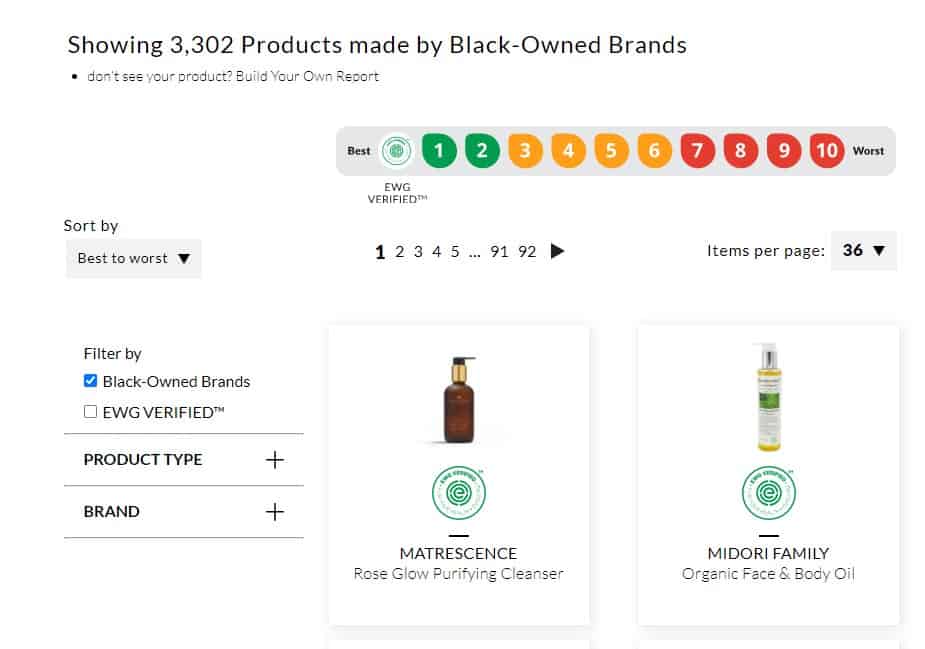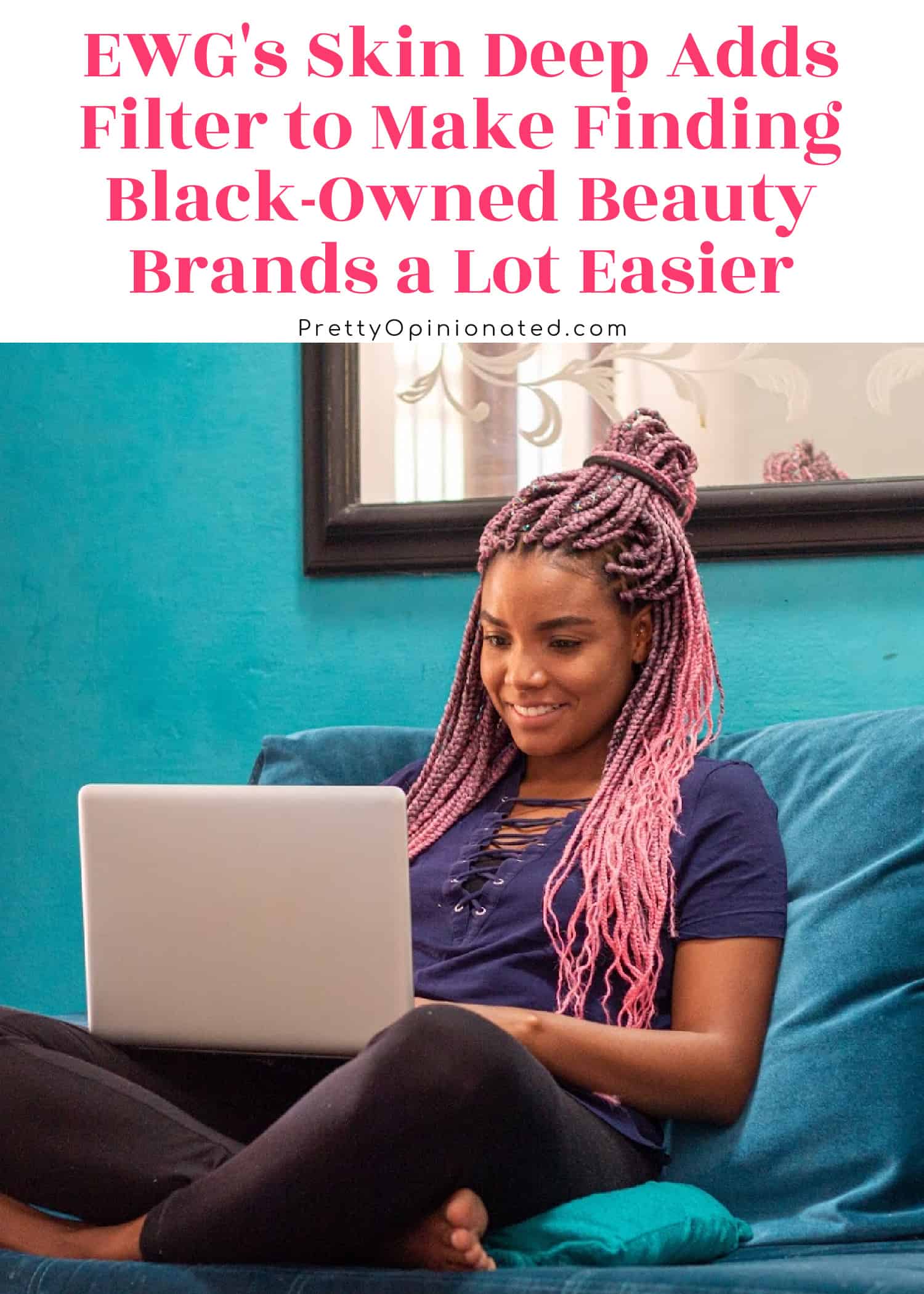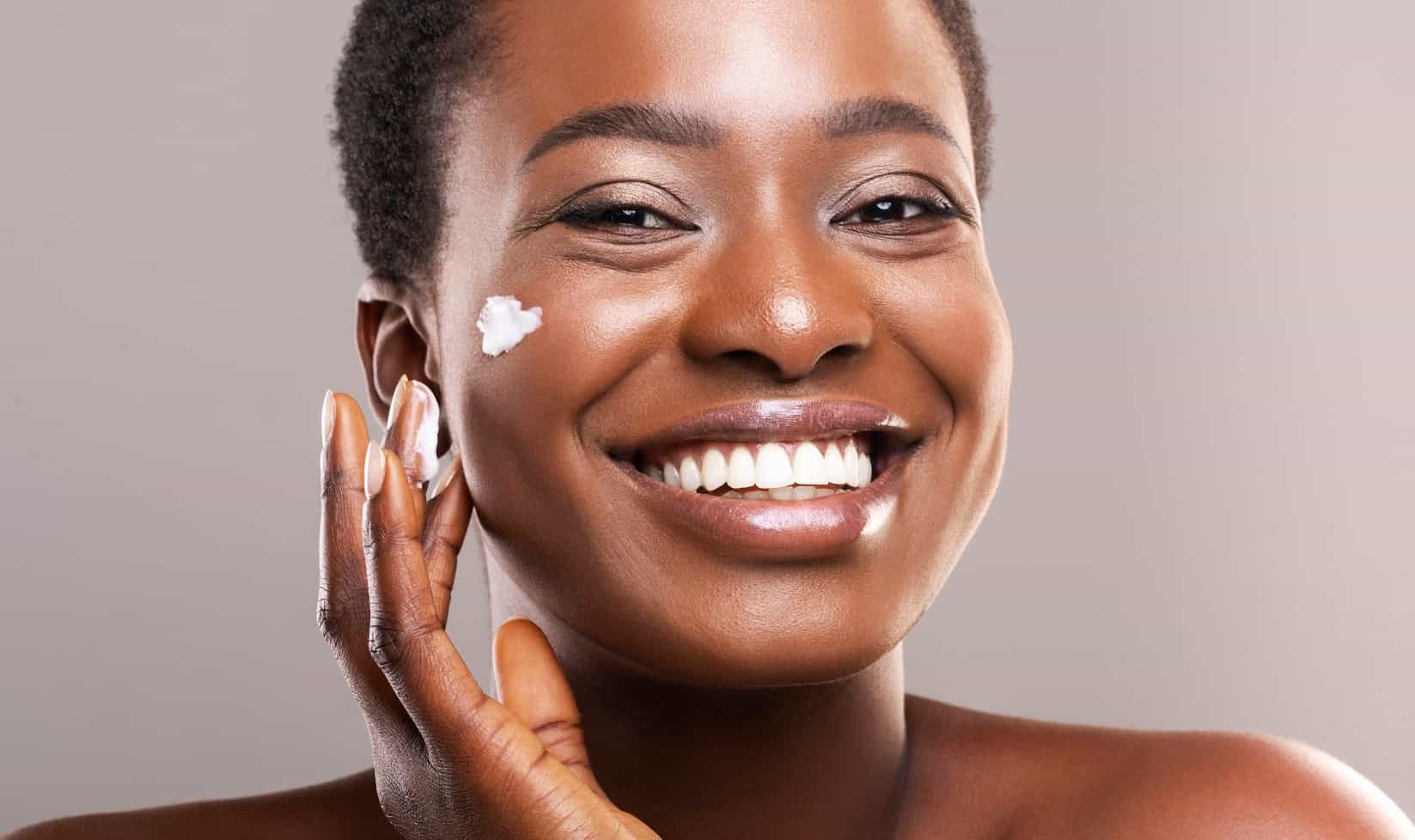Thanks to a new filter on EWG’s Skin Deep® database, finding safe and effective Black-owned healthy and beauty brands is easier than ever. Read on to learn more.
Just a head’s up, this post contains a few affiliate links where products are mentioned by name, and on the Amazon list at the end of the post. If you buy through them, I get a small commission at no extra cost to you. 🙂
EWG’s Skin Deep Database Now Lets You Filter by Black-Owned Brands
I’ve been a huge fan of the EWG Skin Deep Database ever since my days as a health & beauty writer over on a now-defunct content mill over a decade ago. When it comes to finding the safest skincare and makeup products, they really can’t be beat. They’re a totally non-profit and non-partisan organization. In other words, they have no “agenda” other than helping you make the best decisions for your family about the products we use every day.
So anyway, I popped over to their site to do a little research on a few beauty and green cleaning posts that I’m considering writing, and I noticed something neat: you can now filter search results by Black-owned brands. It looks like they added the function earlier this month. According to their press release,
Buying products from Black-owned beauty brands is a powerful way to support the Black community directly. To make finding their beauty products easier, including clean options, the Environmental Working Group has added a new filter to its popular Skin Deep® database that allows consumers to search through almost 3,300 products in the database from 140 Black-owned brands.

Screenshot from EWG Skin Deep Database
According to the same release, EWG partner brand Follain also offered to “mentor and sponsor Black-owned partner brands” that want to become EWG VERIFIED (the highest score a brand can get on their scale). It’s a rigorous process and from I see at this moment, only two brands carry the label. They include Matrescence Rose Glow Purifying Cleanser and Midori Family Organic Face & Body Oil.
Products Marketed Towards Women of Color are Disproportionately Filled with Crap Chemicals, Study Shows
Along with making it easier for everyone to support Black-owned brands, the filter serves a far more important purposes- helping women of color avoid crap chemicals. According to a 2017 study published in The American Journal of Obstetrics and Gynecology,
…multicultural beauty products have outpaced the overall cosmetics market. African American consumers purchase 9 times more ethnic hair and beauty products than other groups and disproportionately purchase hair relaxers and straighteners. Latinos are the fastest growing ethnic beauty market segment, and Asian Americans spend 70% more than the national average on skin care products.
The study goes on to explain that women of color are targeted by the beauty industry in a way that devalues their skin color and natural hair, which leads to increased sales of products like bleaching creams, hair relaxers, and other products loaded with- put bluntly- crap chemicals.
“A study of 45 skin-bleaching products that were sold in Harlem, NY, found product marketing of skin lighteners traffics in derogatory images that devalue African American skin to sell these products.
Those skin-lightening creams often contain mercury. Effing mercury! Like, the stuff that made the hatter go mad! While the FDA bans products containing the deadly metal, products sold abroad and illegally imported (which happens far more often than you might think) aren’t regulated. The FDA explains that along with lightening creams, some products marketed towards preventing wrinkles or acne can also contain mercury.
Another study done in 2019 by NIH showed a link between hair dye and hair straightener chemicals and an increased risk of breast cancer. That same report found that, ” Permanent hair dye use among Black female participants was associated with a 45 percent higher breast cancer risk, compared to a 7 percent higher risk for white women participants.”
Nneka Leiba, VP of Healthy Living Science at EWG, said in a press release about Follain,
“It was disheartening, but not surprising, to learn from our own research that there are fewer options for healthier, less hazardous products marketed specifically to women like me. We’re striving to bring affordable, healthy products to all consumers – but especially to underserved communities, like Black women. And it is vital that these products be affordable and available nationwide.”
After EWG VERIFIED, a “1” is the best rating products can earn on EWG’s scale, and 10 is the worst. I can’t even begin to explain how they rate products because it seems to involve a lot of math and chemistry- two things I’ve never been even remotely good at grasping. They have a super detailed explanation here if you’re interested, but basically, products with a 1 or 2 rating contain “low hazard” ingredients (nothing on this earth is 100% hazard-free).
At the time that I’m writing this, there are about 370-ish products that score a “1” and roughly 650-ish products with a “2,” for a combined total of over 1,000 “low-hazard” Black-owned beauty products across all categories. If you check each product’s page, you’ll find links to their website and other places to shop. Below are just a few that you can buy on Amazon. I recommend checking the brands’ own shops first, though.
Last update on 2024-07-27 / Affiliate links / Images from Amazon Product Advertising API











This is very cool, now I can support you and help you. I thought for a long time that it would be cool to do such a thing and now finally. Especially now, when it gets warmer all around, our skin just goes crazy after the cold, well, or is it just me. But in general, we already need to go and buy new cosmetics, and I can just do it this way. You just need to choose the coolest care. It would be great if you could do more articles about facial cosmetics.